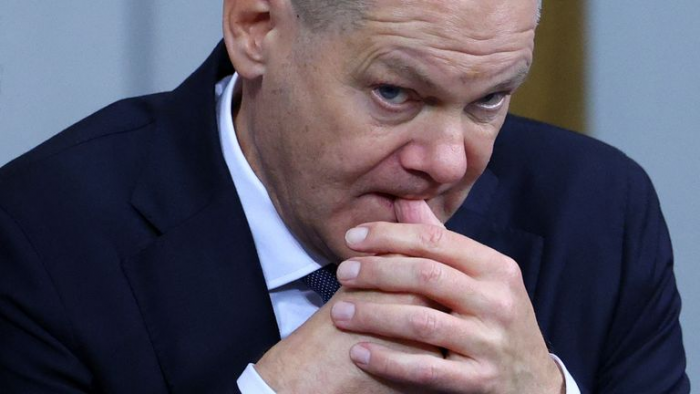Forget this week’s minor decrease in the UK inflation number.
The Maximum Vital Edition of the Confirmation of Germany that, in 2024, its economy contracted for the consecutive year.
Europe’s economy declined to 0. 2% in 2024, in addition to a contraction of 0. 3% in 2023.
Now it must be stressed that this was a very early estimate from Germany’s Federal Statistics Office and that the numbers may be revised higher in due course. That health warning is especially appropriate this time around because, very unexpectedly, the figures suggest the economy contracted during the final three months of the year and most economists had expected a modest expansion.
Money Dergest: Sales from Guinness rival 632%
If unrevised, though, it would confirm that Germany is suffering its worst bout of economic stagnation since the Second World War.
The moment is ugly for Olaf Scholz, the German chancellor, facing the electorate in six weeks.
Worse, it turns out that things appear this year, no matter who wins the elections.
Germany, along with the rest of the world, is watching anxiously to see what tariffs Donald Trump will slap on imports when he returns to the White House next week.
Germany, whose industry surplus with the United States is estimated via Reuters news firm to have reached a record 65 billion euros (£54. 7 billion) in the first 11 months of 2024, is likely a major target for such tariffs.
Aside from that, Germany remains beset by some of the problems with which it has been grappling for some time.
Because of its giant production sector, Germany was disproportionately hit through the sharp construction in energy costs since Russia invaded Ukraine nearly 3 years APASS, while those brands also suffer an intense festival from China. The 3 giant brands, Volkswagen, Mercedes-Benz and BMW, have already looked at a massive construction in costs due to having to move to the production of electric cars instead of the cars provided through classic internal combustion engines. This task is more complicated because Chinese electric car brands, such as BYD, underestimated them on the price.
Other German brands, many of which have not completely recovered from Covid closures five years ago, have also been harassed through higher costs, as shown through the fact that, markedly, commercial production German in November last year in total of 15% under the record. Reached in 2017.
German admission expenses, on the other hand, remain compensated. Consumers have maintained their closed actions in the midst of economic uncertainty, while a fall in housing costs has a feeling even depressed. Although housing ownership is a decrease in Germany that in many other OECD countries, Germans who have their own space have a greater proportion of their domestic wealth in bricks and mortar than the maximum of their OECD counterparts, adding to the British property.
Consumer sentiment has also been hit by waves of lay-offs. German companies in the Fortune 500, including big names such as Siemens, Bosch, Thyssenkrupp and Deutsche Bahn, are reckoned to have laid off more than 60,000 staff during the first 10 months of 2024. Bosch, one of the country’s most admired manufacturing companies, announced in November alone plans to let go of some 7,000 workers.
More of the same is expected in 2025.
Volkswagen stunned the German public in September last year when it said it was contemplating its first German factory closure in its 87-year history. Analysts recommend that up to 15,000 jobs could be transferred to the company.
Accordingly, hopes for much of a recovery are severely depressed.
As Jens-Oliver of LBBW Bank Niklasch said today: “All indications are that 2025 will be the third consecutive year of recession. “
This is not the opinion of Bundesbank, the German Central Bank, whose official forecasts – established last month – are that the economy will expand 0. 2% this year. But below its previous forecast of 1. 1%, and a growth of 0. 2%, for a tired German electorate, will feel nothing other than a contraction of 0. 2%.
And all is not lost yet. The European Central Bank is expected to cut interest rates more aggressively this year than any of its peers. Meanwhile, one option for any one who wins the German election would be to remove the “debt brake” imposed in 2009 in reaction to the global monetary crisis, which prevents the government from managing a structural budget deficit of more than 0. 35 % of German GDP year.
The incoming chancellor, which is expected to be Friedrich Merz of the CDU/CSU of the Central Center, can justify such movement without problems through the expansion of the defense expense in reaction to the demands of Sánchez. Merz also indicated that dictation policies will have less precedence than protecting the besieged manufacturers of Germany.
But these are all, for now, only things that may happen rather than things that will happen.
And the existing economic fall, meanwhile, will push the German electorate towards the excessive alliance of the left Sahra Wagenknecht or the excessive choice of right Fur Deutschland.

